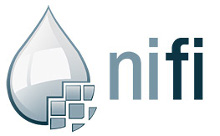NSA partners with Apache to release open-source data traffic program

Many of you probably think that the National Security Agency (NSA) and open-source software get along like a house on fire. That's to say, flaming destruction. You would be wrong.

In partnership with the Apache Software Foundation, the NSA announced on Tuesday that it is releasing the source code for Niagarafiles (Nifi). The spy agency said that Nifi "automates data flows among multiple computer networks, even when data formats and protocols differ".
Details on how Nifi does this are scant at this point, while the ASF continues to set up the site where Nifi's code will reside.
In a statement, Nifi's lead developer Joseph L Witt said the software "provides a way to prioritize data flows more effectively and get rid of artificial delays in identifying and transmitting critical information".
The NSA is making this move because, according to the director of the NSA's Technology Transfer Program (TPP) Linda L Burger, the agency's research projects "often have broad, commercial applications".
"We use open-source releases to move technology from the lab to the marketplace, making state-of-the-art technology more widely available and aiming to accelerate U.S. economic growth," she added.
The NSA has long worked hand-in-glove with open-source projects. Indeed, Security-Enhanced Linux (SELinux), which is used for top-level security in all enterprise Linux distributions — Red Hat Enterprise Linux, SUSE Linux Enterprise Server, and Debian Linux included — began as an NSA project.
More recently, the NSA created Accumulo, a NoSQL database store that's now supervised by the ASF.
More NSA technologies are expected to be open sourced soon. After all, as the NSA pointed out: "Global reviews and critiques that stem from open-source releases can broaden a technology's applications for the US private sector and for the good of the nation at large."
Related stories:
- Former NSA's chief lawyer: BlackBerry's encryption efforts led to its demise
- NSA Playset invites hackers to 'play along with the NSA'
- NSA targets Linux Journal as 'extremist forum': Report
- Why you shouldn't worry that the NSA is inside Android's code
- Open source and the National Security Agency, together again